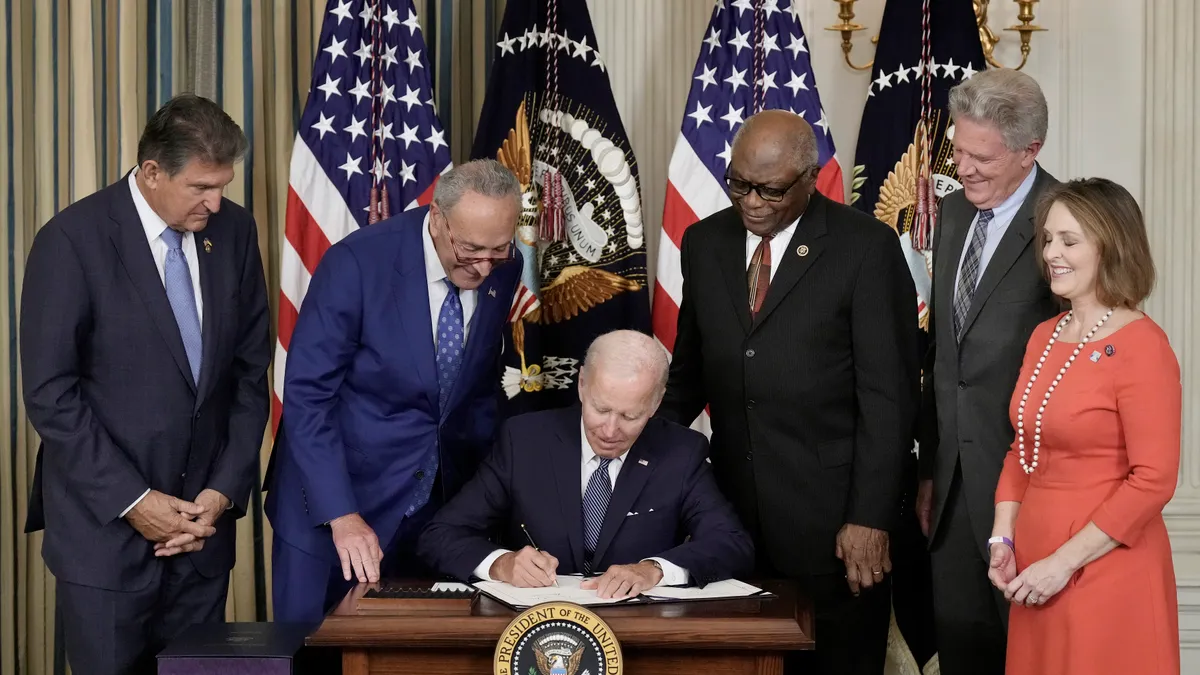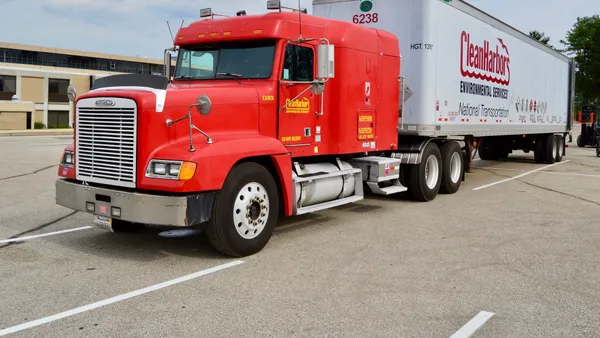President Joe Biden signed the Inflation Reduction Act on Tuesday, calling the legislation “the most aggressive action ever, ever, ever in confronting the climate crisis.” The law contains several tax credit provisions relevant to the waste industry.
The expansive law provides new and expanded tax credits for biogas projects, including one that expands the Section 48 renewable energy investment tax credit to include certain biogas operations that begin construction before 2025. It also includes a new “clean hydrogen” tax credit that allows for the use of RNG as a qualifying feedstock for producing hydrogen. Additionally, the law extends an alternative fuel tax credit that expired last year, now extending it through 2024. It also bolsters the 45Q tax credit for carbon sequestration.
The law calls for some new taxes, including a 1% excise tax on stock buybacks. It also reinstates a tax on some oil companies to fund the U.S. EPA’s Superfund program. A 15% corporate minimum tax, meant to fund the law, could apply to some of the largest U.S. waste companies. The tax applies to firms with more than $1 billion in annual profits.
The National Waste & Recycling Association had voiced strong opposition to the bill’s tax structure, namely the 15% corporate tax, over concerns it would hurt businesses. However, Brandon Wright, NWRA’s vice president of communications and media relations, said NWRA members “will take full advantage of any tax credits afforded to them under the new law.”
Biogas groups and companies applauded the bill’s passage as a major catalyst for advancing the industry.
“Capturing biogas and converting methane from society's waste streams into renewable natural gas is a no-regrets solution helping to combat climate change by reducing greenhouse gas emissions and decarbonizing our existing energy infrastructure," said Johannes Escudero, founder and CEO of the Coalition for Renewable Natural Gas.
The American Biogas Council said the law will provide more stable tax credit incentives to allow the biogas industry to compete on a more equal footing with wind and solar.
Numerous environmental groups have called the bill a “historic” approach to fighting climate change and leaders in the recycling sector have also touted its implications.
"It’s hard to overstate the positive impact this legislation will have on our economy and our planet, said Ron Gonen, CEO and founder of Closed Loop Partners, in a statement. “As a major employer in the circular economy, Closed Loop Partners supports the Inflation Reduction Act, as it will create over half-a-million new jobs and make historic progress in fighting climate change.”
Overall, the Inflation Reduction Act would spend about $369 billion on energy and climate projects in the next 10 years. The IRA’s numerous provisions are meant to reduce greenhouse gas emissions by a billion metric tons by 2030, according to a White House fact sheet, and offer incentives and energy savings for families.
The administration has also named environmental justice as a climate priority, and during his speech, Biden said the law aims to ease environmental burdens for “frontline, fenceline communities smothered by the legacy of pollution.”
Editor’s note: This story has been updated to include a comment from Closed Loop Partners.











